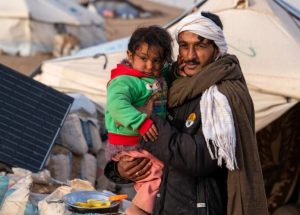Afghans forced to return home face humanitarian crisis
Afghanistan is facing fresh humanitarian crisis as refugees who fled the country are being forced to return to a nation facing food shortages, economic collapse and limited medical services.
More than a million Afghan refugees have returned to their motherland since the beginning of this year, many of them deported from Iran and Pakistan, local media outlet Tolonews has reported.
About 600,000 Afghan refugees from Iran, and 282,000 from Pakistan returned home over the past six months, the report said.
But humanitarian resources to support the returnees are in short supply, according to the United Nations.
Deputy special representative of the UN Secretary-General in Afghanistan Indrika Ratwatte said that with little support, the returnees would face “many challenges”.
According to the report, about 600,000 Afghan refugees from Iran, and 282,000 from ed home over the past six months.
 The return of Afghan refugees from Iran has increased following the Israeli strikes on Tehran since June 13 and the Afghan government has been repeatedly urging Afghan refugees living abroad as refugees to return home to contribute to the rebuilding of their war-damaged country.
The return of Afghan refugees from Iran has increased following the Israeli strikes on Tehran since June 13 and the Afghan government has been repeatedly urging Afghan refugees living abroad as refugees to return home to contribute to the rebuilding of their war-damaged country.
But the UN migration agency IOM has warned the surge in returns comes at a time when e critical funding gaps are hindering the ability of IOM and partners to provide assistance, reaching only 10 per cent of those in need.
“The sheer number of returns from Iran, coming so soon after a spike from Pakistan, is placing immense strain on an already fragile response system,” said IOM Director General Amy Pope.
“Families are arriving with nothing but the clothes on their backs, exhausted and in urgent need of food, medical care and support. The scale of returns is deeply alarming and demands a stronger and more immediate international response. Afghanistan cannot manage this alone.”
The spike follows a 20 March deadline by the Government of Iran requiring all undocumented Afghans to leave the country.
Returns began accelerating in April, continued through May, and peaked in June. On 25 June alone, IOM recorded more than 28,000 people crossing back into Afghanistan in a single day.
IOM has recorded 714,572 Afghan migrants who returned from Iran between 1 January and 29 June 2025.
Of these, 99 per cent were undocumented and 70 per cent were forcibly returned. A growing concern is the rise in families being deported, marking a shift from previous months when most returnees were single young men.
Many of the returnees have been away for decades, returning to a homeland they barely know and one that has changed drastically.
Outsiders in their own country, many men struggle to support their family while women face severe restrictions on their daily life under the ruling Taliban.
Since late 2023, an estimated three million Afghans have been forced out of Iran and Pakistan, where they had sought safety from decades of war and, since the Taliban’s return to Kabul in 2021, from extremist rule.
They have returned to a homeland facing economic collapse and international indifference.
UN Secretary-General António Guterres, in his latest report on Afghanistan, called on countries hosting Afghan refugees to protect those in need and abide by international obligations to ensure any returns to Afghanistan are voluntary.
“Returnees face immense challenges… in particular securing housing, employment and access to basic services,” he said.












